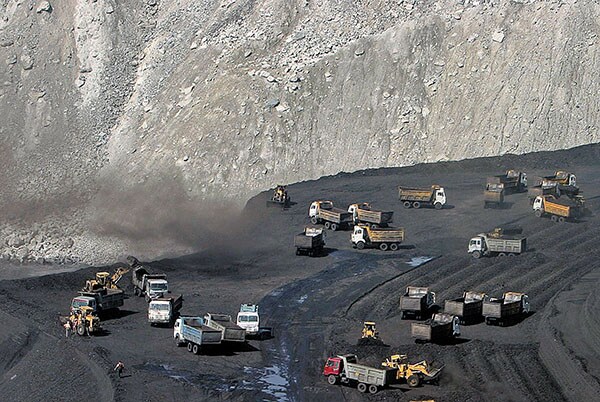Partha Bhattacharya: The Public Sector Can Deliver if it is Empowered
Reforms in the functioning of central public sector enterprises are mandatory to ensure equity in India's growth story. Managerial autonomy is vital


Partha S Bhattacharyya
Profile: Partha Bhattacharya retired as Coal India CMD in 2011. Before leading CIL to its IPO he turned around subsidiary Bharat Coking Coal and changed the way CIL evaluated its projects. He had a short stint at Haldia Petrochemicals before joining Deepak Fertilisers and Petrochemicals in 2012.
I was part of a delegation of central public sector enterprise (CPSE) heads that visited China in 2009 to study the state-owned enterprise (SOE) reforms carried out by them earlier in the decade. In 2002-03, China disbanded quite a few economic ministries and brought more than 150 large SOEs under one umbrella—State Assets Supervision and Administration Commission (SASAC) chaired by a minister, very senior in the hierarchy, and supported by a few vice-chairmen to whom the SOE chiefs reported.
A vice-chairman candidly explained the division of responsibility between SASAC and the SOEs: “The SASAC appoints, removes, rewards, punishes and empowers the SOE head to do his job—the rest is all his.” For larger organisations, the heads are chosen through a global search among eligible Chinese nationals, and offered competitive compensation packages. The focus is on thorough verification and putting the right person in the right job. Thereafter, complete trust is placed in the chosen candidate unless serious non-performance or lack of integrity is established.
Between 2003 and 2008, the SASAC-controlled SOEs delivered an average top line and bottom line growth of around 200 percent. A collaborative style of functioning emerged among SOEs, as opposed to the compartmentalised approach prevalent earlier. Later, in November 2010, I met the chairman of China Shenhua at a conference of the World Coal Association in Brussels. He confirmed that, post-IPO and after coming under the SASAC, the company had rediscovered its strength and was pursuing a diversified growth path with full empowerment.
Indian CPSEs, described as ‘Temples of Modern India’ by Pandit Jawaharlal Nehru, were created largely in the 1950s, ’60s and ’70s with the definite purpose of “attaining the commanding heights of the economy”. The capital expenditure and, in some cases, the operating expenditure were funded by the government. This enabled the CPSEs to move into uncharted capital-intensive core areas, shunned by the private sector till then for perceived higher risks. Steel, coal, power, oil and gas, fertiliser, heavy engineering, defence equipment and infrastructure became the areas dominated by CPSEs.
Initially, the focus was on capacity addition and production growth rather than financial viability. Till the late ’80s, the balance of cash flows from the government to the CPSEs, on account of budgetary support for plan outlays and non-plan support, net of tax and dividend receipts, were in favour of the public enterprises. This became gradually unsustainable and a new government, in 1991, planned a phasing out of budgetary support as part of its economic reforms programme, which it had to adopt to win the support of the International Monetary Fund.
Many predicted doomsday for the CPSEs. But most of them reformed to overcome the challenges, with some measure of government support. They had run into huge cumulative losses till the ’80s however, they not only turned profitable but became capable of contracting long-term commercial debt for funding capital expenditure plans like their private counterparts. Soon after, the cash flows reversed in favour of the government. Today, the aggregate net contribution of CPSEs to the exchequer is formidable, forming an important component of the revenues. Among the 50-odd listed CPSEs, two or three find a place in the top 10 listed companies in terms of market capitalisation.The phenomenal growth of CPSEs post the ’90s is often alleged to be “jobless”. While the number of direct employees has reduced, several livelihoods have been generated in the unorganised space due to increased emphasis on outsourcing low-end jobs. These, in most cases, are entitled to minimum wages of the state, which is a fraction of the lowest paid organised CPSE worker. Recognising this as inequitable, the management and trade unions of Coal India came together recently to raise the minimum wages of unskilled contractual workers engaged in mining activities. They increased it from Rs 180 per day to around Rs 464 this involved an annual additional outgo of around Rs 900 crore.
CPSEs can genuinely lead in promoting growth with equity. A serious debate may be initiated on whether the SASAC model can be adapted to Indian conditions. To begin with, the government should appoint the chief managing director (CMD) through an intensive search among Indians. Appointment of directors should be notified by the government as owner, based on the recommendation of a duly constituted personnel committee of the board with the CMD or an eminent non-official director in the chair. It is imperative for the CMD to have a substantial say in the selection of directors in order for them to function as a team. The boards should have complete autonomy in the business affairs of the CPSEs. The non-official directors should be chosen from professionals of repute based on the recommendation of the board. The intervention of the government should be strictly limited to performance monitoring of the annual MOU.
Decision-making at all levels, without fear or favour, should be systematically encouraged. Complaints against CPSE officials should not be entertained unless it is in the form of a sworn affidavit. While whistleblowers should be encouraged, punitive measures must be taken against complainants making false complaints.
These reforms shall enable our CPSEs to match the best-in-class and will go a long way to ensure faster equitable growth of the economy and society.
First Published: Aug 12, 2013, 11:14
Subscribe Now